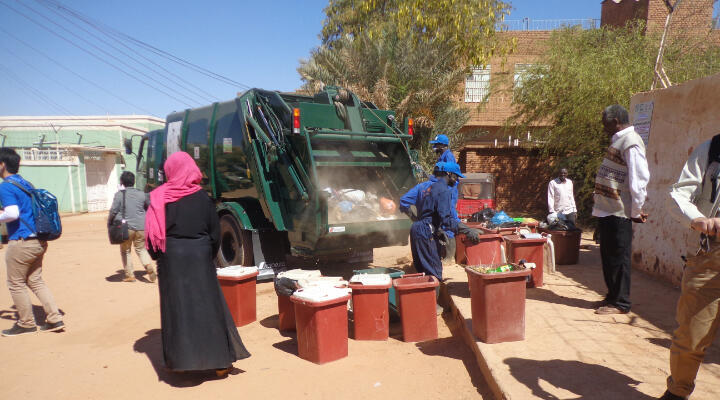
Menu
Menu

Khartoum State, which is composed of seven municipalities and has a population of more than seven million, is a key economic and political area and the capital of the Republic of Sudan. Average maximum air temperature in the state is more than 40 degrees from April to June and the maximum air temperature is sometimes beyond 50 degrees Celsius. Along with recent economic development, approximately 6,000 tons of solid waste are being generated every day in the state, but most of such solid waste are not collected. In order to solve such problems, we implemented the following:
1) Procurement of waste collection vehicles or heavy machineries and the construction of maintenance facilities for the vehicles through Japanese Grant Aid
2) Technical assistance such as formulation of master plan, waste collection and transportation, and assistance on operation and maintenance of facilities.
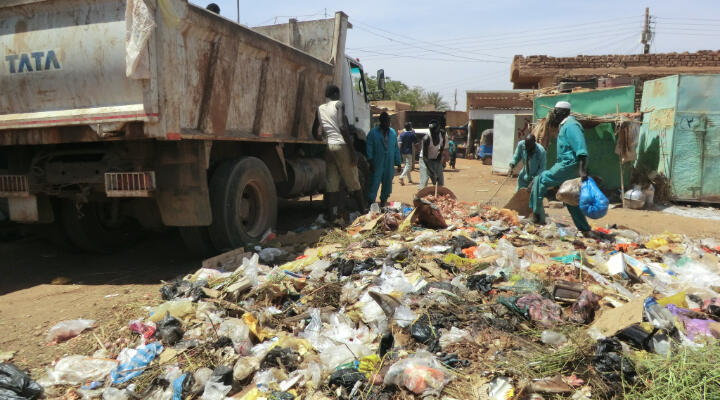
Waste collection work
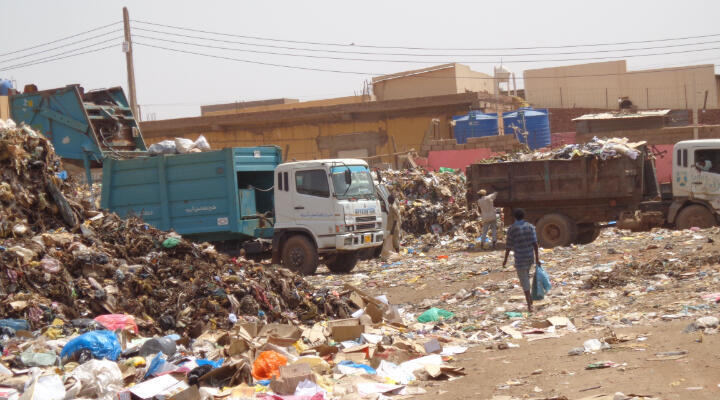
Illegal dumping site
In Khartoum State, the seven municipalities were in charge of collection of solid waste, while Khartoum Cleaning Cooperation (KCC) operated the landfill sites and related facilities. However, a lot of solid waste in the municipalities had not been collected due to the shortage and deterioration of waste collection vehicles. Through Japanese Grant Aid, Khartoum State procured approximately 100 waste collection vehicles and some heavy machinery for the landfill sites, and constructed maintenance facilities for the vehicles. As a result, they made it possible to additionally collect approximately 1,400 tons of solid waste per day and decrease the amount of solid waste. Also, repair of facilities made it possible to improve the maintenance ability and organizational structure for solid waste collection.
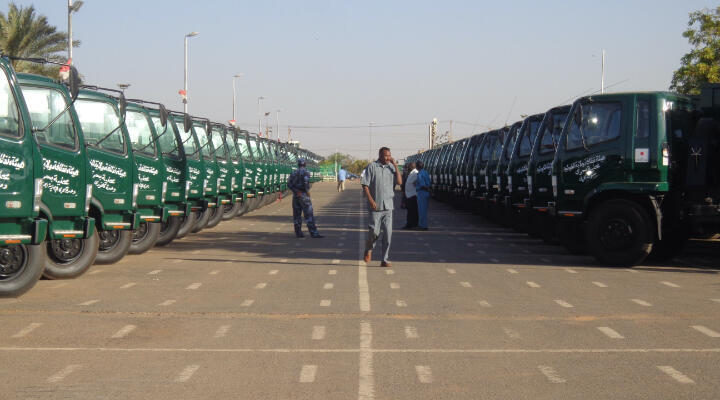
Waste collection vehicles procured through Japanese Grant Aid
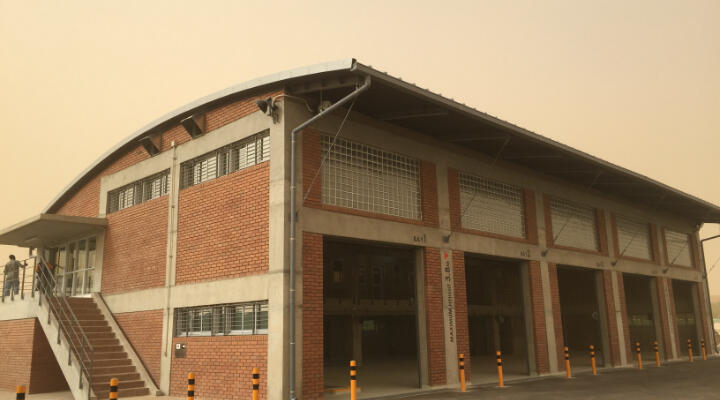
Maintenance workshop constructed through Japanese Grant Aid
In addition to the Grant Aid, technical assistance was conducted for the Ministry of Environment, Natural Resources and Physical Development (MENRPD), and Khartoum Cleaning Cooperation (KCC). Such assistance comprised support of soft components such as strengthening the organization and finance as well as waste collection/transportation and landfill management. Through these activities, data on solid waste were collected and organized, and the flow of solid waste was visualized and became easier to grasp. As a result, illegal dumping during transportation from the collected sites to the landfill sites drastically decreased. In addition, a master plan on SWM in Khartoum State was formulated with utilization of the visualized information.
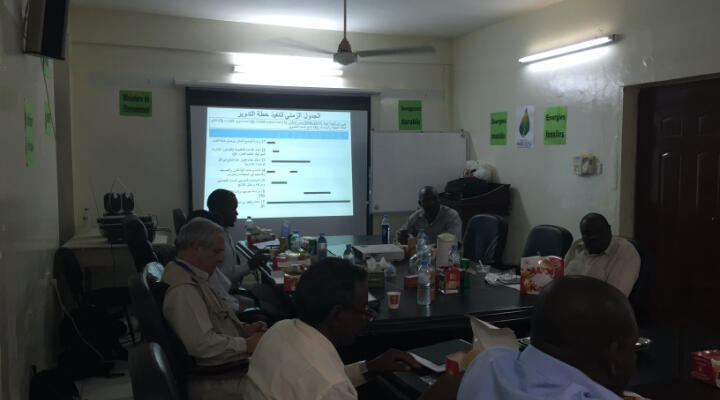
Meeting with the counterpart
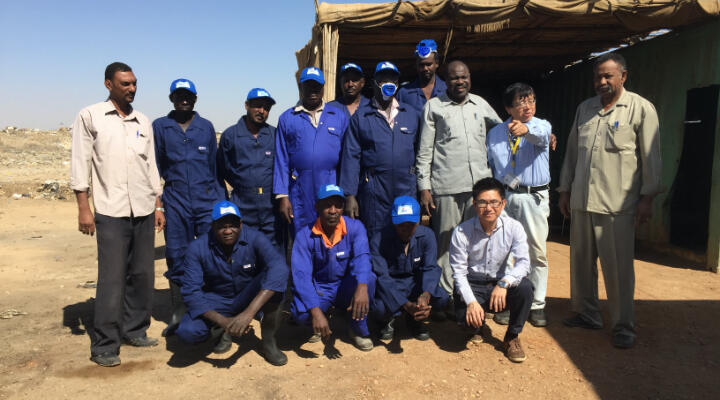
Landfill site operation staff wearing safety gears
Project Details